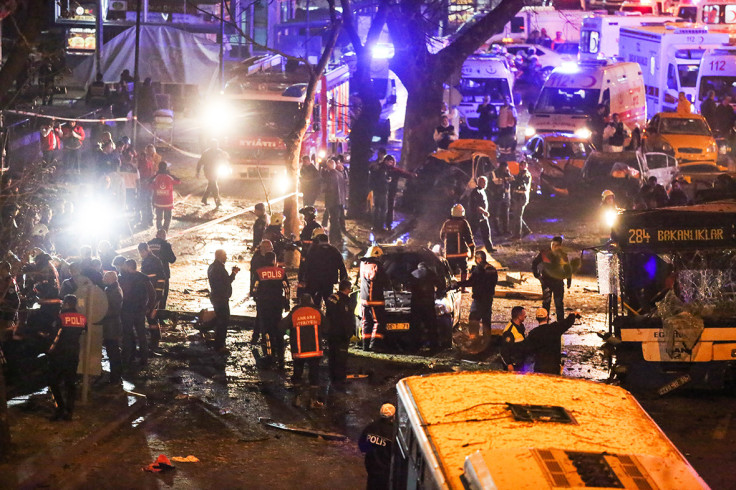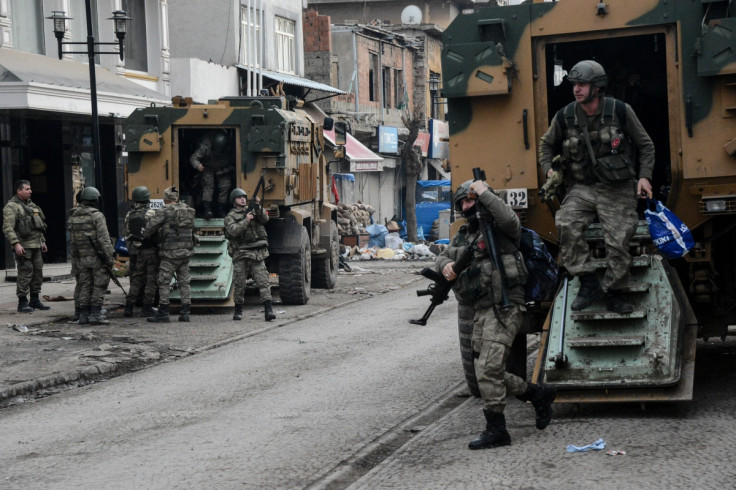TAK: What we know about militant PKK offshoot allegedly responsible for Ankara attacks

In February, the Kurdistan Freedom Falcons (Teyrenbazen Azadiya Kurdistan; TAK) claimed responsibility for a bomb attack in the Turkish capital Ankara targeting buses carrying military personnel in which 28 people were killed. Experts and Turkish officials believe the group may also be responsible for an attack at a bus stop in the city on Sunday, 13 March, in which 34 people, mostly civilians died.
Formed in 2004, the group is a breakaway militant faction of the Kurdish PKK, who aim to establish an independent Kurdish state in southeastern Turkey. Explaining the split on its website, which is banned in Turkey, the group declares the "methods of struggle" of the PKK and the Kurdistan People's Congress "too feeble".
While the PKK in its 30-year campaign against the Turkish state has mainly attacked military and government targets, TAK has spread its attacks wider, claiming responsibility for strikes on civilian, police and military targets.
The group first struck in the popular tourist resort of Kusadasi, on the Aegean coast, in 2005, in a bomb attack that left five dead and 15 wounded. The following year scores were injured in bomb attacks in Istanbul and in the town of Marmaris, including 10 Britons. Three were killed in an attack in Antalya, with the group claiming the attacks were revenge for the imprisonment of Kurdish nationalist leader Abdullah Ocalan.
Since then, the group has claimed responsibility for attacks including a roadside bomb that killed four Turkish military personnel and a civilian in Istanbul in 2010, and a mortar attack that killed one worker at Istanbul Sabiha Gokcen Airport in December, 2015. Though TAK has yet to claim responsibility for Sunday's attack, Ege Seckin, an analyst at IHS Country Risk, told IBTimes UK the attack bears many of the hallmarks of the group, with a similar type of detonation device used in the February 17 attack. The attack also occurred only hours after the Turkish government announced a curfew in the Kurdistan region as they escalate operations against PKK militants, which human rights groups say has claimed hundreds of civilian lives.

Sunday's attack may indicate that the TAK is changing focus to primarily target civilians. Seckin says the group "made clear in its recent announcement that it would also target Western tourists and resorts." He said that as Turkish government forces continue their offensive against the PKK, further attacks were likely to take place "in Istanbul and Ankara, as well as at tourism destinations in western and southern Turkey".
Currently praised by many in the West for its role in the war against Islamic State, it is unclear what precise link the PKK has to TAK. In February a former PKK militant told Al Monitor that members form small cells with no contact with each other, which are "not subordinate to anyone else in the organisation".
Cemil Bayik, the joint leader of the PKK in Qandil, northern Iraq, said that he did know who carried out the February attack but that it "could be a retaliation for massacres carried out in Kurdistan", referring to Kurdish civilians allegedly killed by the Turkish military in southeastern Turkey.
Others though expressed scepticism about the PKK's disavowal: "It would be the first time in the history of the PKK that they allow the existence of any other group representing the Kurds than themselves. In the 1990s, the PKK fought with rival Kurdish groups in Europe, it has killed dissidents within its own ranks. I see no reason why they would allow another group on the stage now," Aliza Marcus, a journalist and expert on the PKK told Middle East Monitor.
The Turkish government however makes no distinction between both groups, launching new airstrikes against PKK positions in northern Iraq in the wake of Sunday's attack, and fresh violence breaking out between Turkish security services and Kurdish militants in southeastern Turkey.
© Copyright IBTimes 2025. All rights reserved.






















